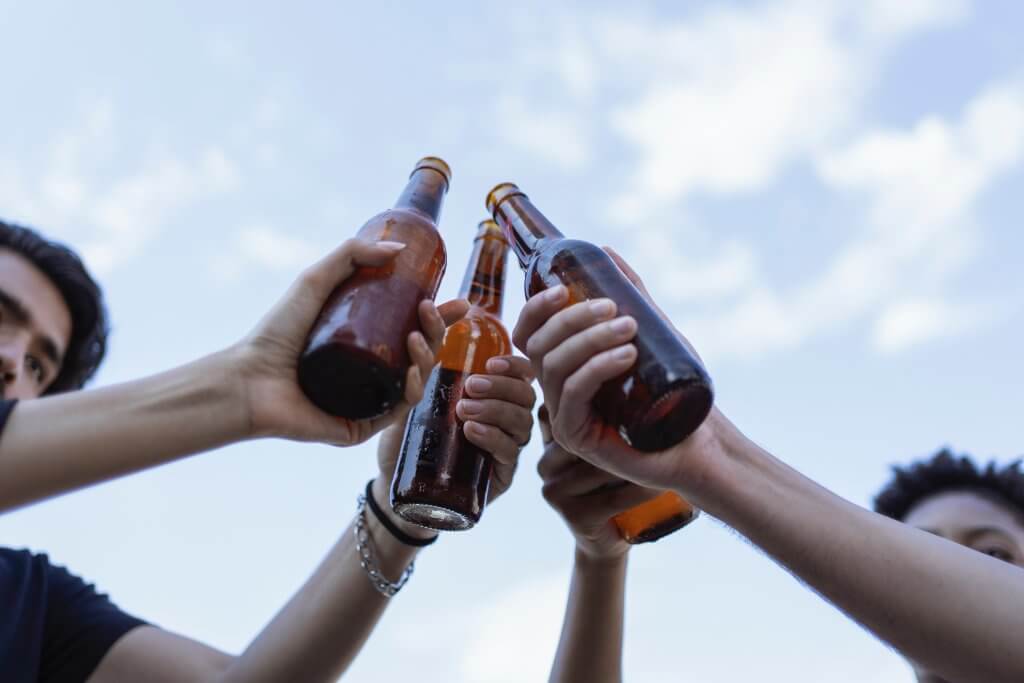Alcohol and celebrations are a big part of sport. It’s the perfect moment. You’ve just had a win. You’re hot, absolutely buggered but surrounded by your best mates. A cold beer straight from the esky would be the best thing to quench your dehydration and perk you up to continue celebrating your victory.
Unfortunately, alcohol ingestion – both a once off bout and with chronic use – can severely impact our ability to perform well in sport. Epidemiological research has demonstrated a direct link between alcohol use and the rate of injury sustained in sports events. There are several mechanisms why this occurs.
Firstly, the obvious, exercise impacts our hand-eye coordination, reaction time and impairs judgment. On the field, these are vital processes an athlete needs to undertake, as you are constantly assessing risk, timing and future plays/moves.
Physiologically, exercise decreases our body’s use of glucose (sugar/carbohydrates – our fuel) and amino acids (the building blocks of protein molecules – which we use to build muscle). Without the absorption of nutrients to fuel ourselves, we are unable to continually produce energy and repeated intense bouts of exercise.
When we exercise, especially intense strength training, we create small tears in the lines of our muscles. The easiest way to visualise it, is to imagine you have a hole in your favourite knitted sweater. In the days following an exercise session our body “knits” our muscle cells back together and puts new cotton/wool in there at the same time to make the muscle bigger and stronger. A part of this process is called protein synthesis, which is inhibited by the cortisol (stress hormone) released when we consume alcohol. Cortisol is also catabolic in nature – which means it breaks down molecules. So not only does it inhibit your ability to build muscle, it also breaks down the muscle cells you already have. Just to hit the triple whammy, cortisol release inhibits the release of testosterone, Growth Hormone and Insulin-Growth-Factor-1 (IGF-1) all of which are vital for the recovery process post exercise and to increase our muscle density.
Will one beer after your exercise session actually hurt you? Unfortunately, yes. But life is about balance. If it’s the grand final and you’ve been slogging it away all season, by all means you deserve to have a bit of fun, however I would strongly advise against making this a routine habit.
Bridget Nash | Exercise Physiologist

